第4章
In the European capitals, every day brings despatches big with universal war, vanishing under the despatches of the following day, bearing the assurance of peace for a week or so. We may be sure, nevertheless, that to whatever height the conflict between the European powers may rise, however threatening the aspect of the diplomatic horizon may appear, whatever movements may be attempted by some enthusiastic fraction in this or that country, the rage of princes and the, fury of the people are alike enervated by the breath of prosperity. Neither wars nor revolutions are likely to put Europe by the ears, unless in consequence of a general commercial and industrial crisis, the signal of which has, as usual, to be given by England, the representative of European industry in the market of the world.
It is unnecessary to dwell on the political consequences such a crisis must produce in these times, with the unprecedented extension of factories in England, with the utter dissolution of her official parties, with the whole State machinery of France transformed into one immense swindling and stockjobbing concern, with Austria on the eve of bankruptcy, with wrongs everywhere accumulated to be revenged by the people, with the conflicting interests of the reactionary powers themselves, and with the Russian dream of conquest once more revealed to the world.
THE CASE OF THE LORCHA ARROW
New York Daily Tribune Jan 23, 1857
by KARL MARX
THE MAILS of the America which reached us yesterday morning bring a variety of documents concerning the British quarrel with the Chinese authorities at Canton, and the warlike operations of Admiral Seymour.
The result which a careful study of the official correspondence between the British and Chinese authorities at Hong-Kong and Canton must, we think, produce upon every impartial mind, is that the British are in the wrong in the whole proceeding. The alleged cause of the quarrel, as stated by the latter, is that instead of appealing to the British Consul, certain Chinese officers had violently removed some Chinese criminals from a lorcha lying in Canton river, and hauled down the British flag which was flying from its mast. But, as says the London Times, "there are, indeed, matters in dispute, such as whether the lorcha ... was carrying British colours, and whether the Consul was entirely justified in the steps that he took." The doubt thus admitted is confirmed when we remember that the provision of the treaty, which the Consul insists should be applied to this lorcha, relates to British ships alone; while the lorcha, as it abundantly appears, was not in any just sense British. But in order that our readers may have the whole case before them, we proceed to give what is important in the official correspondence. First, we have a communication dated Oct. 21, from Mr.
Parkes, the British Consul at Canton, to Governor General Yeh, as follows:
"On the morning of the 8th inst. the British lorcha Arrow, when lying among the shipping anchored before the city, was boarded, without any previous reference being made to the British Consul, by a large force of Chinese officers and soldiers in uniform, who, in the face of the remonstrance of her master, an Englishman, seized, bound and carried away twelve Chinese out of her crew of fourteen, and hauled down her colours. I reported all the particulars of this public insult to the British flag, and grave violation of the ninth article of the Supplementary Treaty, to your Excellency the same day, and appealed to you to afford satisfaction for the insult, and cause the provisions of the treaty to be in this case faithfully observed. But your Excellency, with a strange disregard both to justice and treaty engagement, has offered no reparation or apology for the injury, and, by retaining the men you have seized in your custody, signify your approval of this violation of the treaty, and leave her Majesty's Government without any assurance that similar aggressions shall not again occur."It seems that the Chinese on board the lorcha were seized by the Chinese officers because the latter had been informed that some of the crew had participated in a piracy committed against a Chinese merchantman. The British Consul accuses the Chinese Governor-General of seizing the crew, of hauling down the British flag, of declining to offer any apology, and of retaining the men seized in his custody. The Chinese Governor, in a letter addressed to Admiral Seymour, affirms that, having ascertained that nine of the captives were innocent, he directed, on Oct. 10, an officer to put them on board of their vessel again, but that Consul Parkes refused to receive them. As to the lorcha itself, he states that when the Chinese on board were seized, she was supposed to be a Chinese vessel, and rightly so, because she was built by a Chinese, and belonged to a Chinese, who had fraudulently obtained possession of a British ensign, by entering his vessel on the colonial British registers method, it seems, habitual with Chinese smugglers. As to the question of the insult to the flag, the Governor remarks: